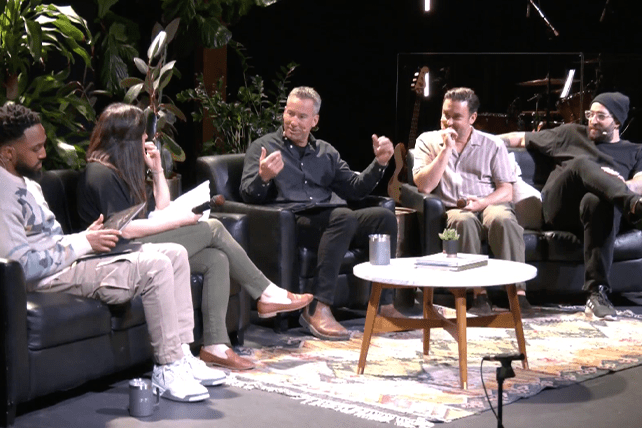“I apologize ahead of time for any discomfort you’re gonna experience over the next couple of days,” Dr. Preston Sprinkle said during the opening session of the Exiles in Babylon conference. Jokingly, he added, “Unfortunately, there are no refunds.”
The conference, which is an outgrowth of Sprinkle’s “Theology in the Raw” podcast, “aims to help believers think Christianly about theological and cultural issues by engaging in curious conversations with a diverse range of thoughtful people.”
“Engaging in—so not just passively absorbing,” Sprinkle clarified. “You need to think critically through the things you are going to hear.”
“We need to have curious conversations,” he continued. “We need to be genuinely interested in what somebody else is actually saying before we can even decide whether it’s true or not, because understanding precedes refutation.”
The three-day conference explored a variety of hot button issues, including faith deconstruction; women, power, and abuse; the LGBTQ+ community; and different Christian approaches to politics.
In a pre-conference symposium, presenters offered varying perspectives on the theology and politics of Israel and Palestine and the unfolding conflict between Israel and Hamas.
Each session began with worship, which more than once featured songs sung in languages other than English. Speakers were then given 15 minutes to offer presentations before engaging together in lengthy discussions moderated by Sprinkle and guided by questions from attendees.
While many of the speakers shared common convictions, they also diverged on key points.
The range of views invited into the conversation created an environment that is unique among Christian conferences—so much so that Sprinkle isn’t quite sure that the term “conference” fully captures what Exiles in Babylon is seeking to do.
This diversity of thought also makes some people nervous.
This is the third year Sprinkle has held Exiles in Babylon in Boise, Idaho. And he told ChurchLeaders that while he has experienced pushback in previous years of the conference, with some speakers even backing out, this year was the first time the conference drew significant criticism from theological conservatives.
“In the past, I’ve had more—I wouldn’t say progressive—but less conservative speakers drop out, because I was platforming other speakers that they didn’t think I should,” Sprinkle said.
Sprinkle nevertheless added that most of the pushback this year came not so much from personal interactions with conference invitees but on social media. “If you’re not on Twitter, you typically don’t know about it,” he said.

